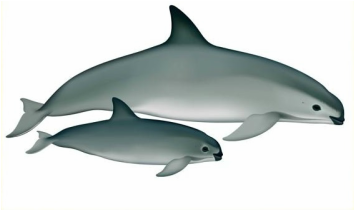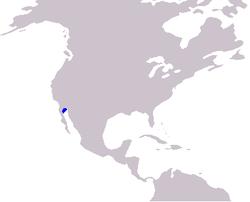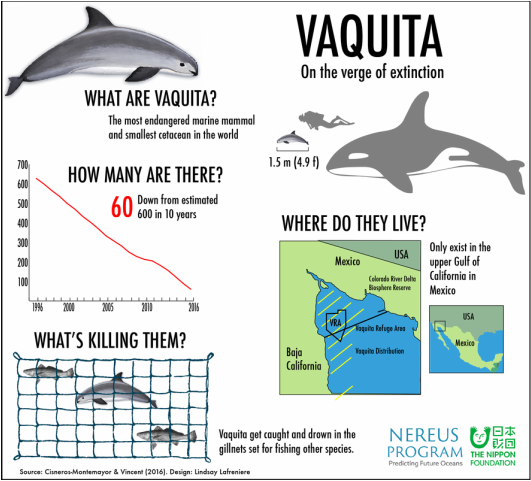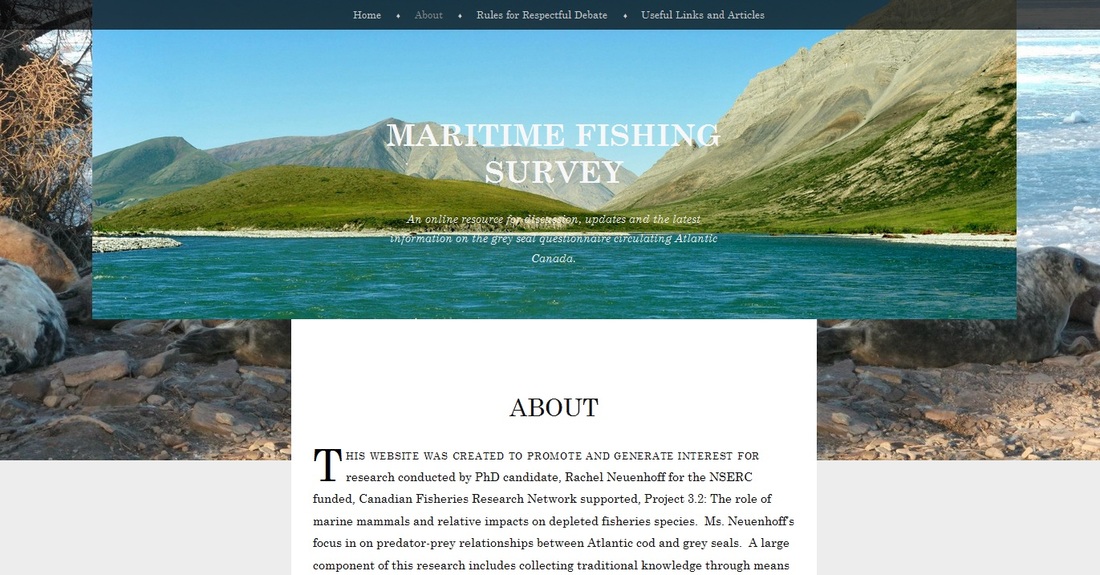Today is apparently 'International save the vaquita day' but who of you have heard of the vaquita? what is a vaquita I hear many of you say as you look at me with blank faces. My friends and colleagues in the marine mammal world will likely raise an eyebrow at that question; who doesn't know what a vaquita is and the problems that they face?? Well, I can tell you most people probably don't know what a vaquita is. As an example, I was at BBQ the other weekend with friends, many of whom have (and continue) to spend much time in Mexico (I have never been to Mexico, but the importance of Mexico will become clear shortly). They did indeed look at me with confused expressions on their faces as I mentioned the plight of this little marine mammal. Then they asked 'what is a vaquita?'
To be fair there are more focused efforts to save the vaquita, both from within Mexico and further afield. This past December the Society for Marine Mammalogy awarded the Conservation Merit Award to acknowledge the efforts of Mexico's scientists, government officials, environmentalists and fishermen in their efforts to save the little porpoise. There is the group Viva Vaquita whose mission is to raise awareness through public education
But bringing back the vaquita from the brink of extinction will be an impossible feat. While their main threats may be through bycatch (being caught in fishing nets), in the totoba fishery, this is not the sole problem. There are deep underlying issues linked to the regions' ecosystem degradation that have resulted wider social issues. My colleague at UBC, Dr. Andres Cisneros-Montemayor pointed this out earlier this year that the problems of overfishing, and hence bycatch cannot be addressed through banning fishing. The problems of the vaquita are explicitly linked to the socio-economic conditions of the region within which the vaquita lives.
People need to fish because they need to provide for their families. For these communities fishing is the only thing that they can do. There are no other opportunities except for fishing.
I strongly encourage you to both find out about the vaquita as well as read the Nerus Program press release and Andres' article on why we must consider social and economic factors in our bid to save endangered species.







 RSS Feed
RSS Feed